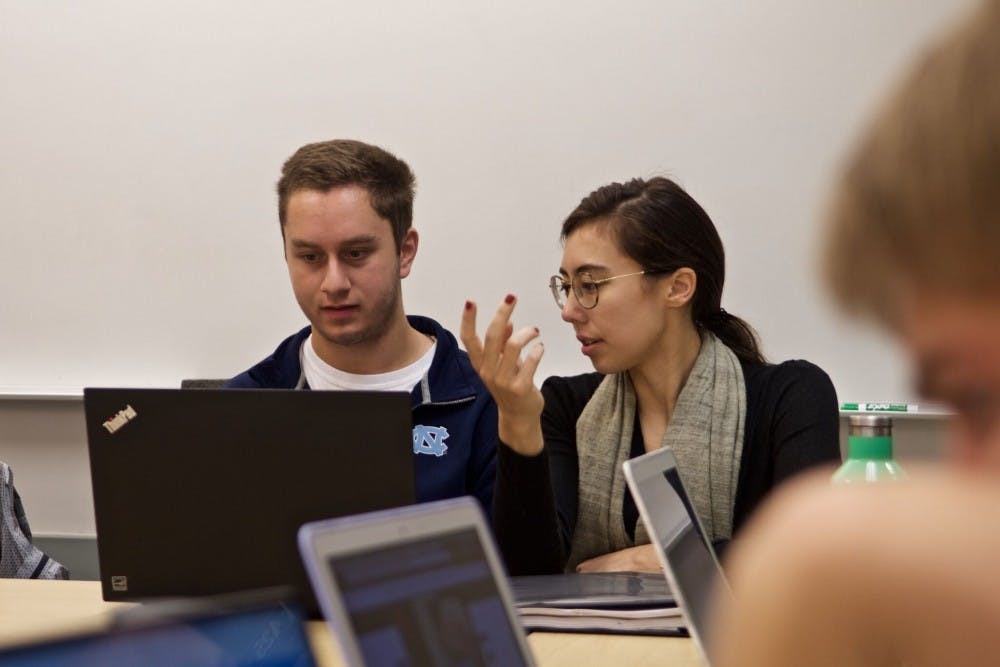In her first year as a graduate student at UNC, Abigail Lee applied for and received food stamps.
Lee is a graduate student in the English department, whose stipend for both semesters is about $16,000. She is also supplementing her income as an English teaching assistant, an academic tutor and a biostatistics student assistant. At the end of the year, nearly $2,000 goes directly back to the University in the form of student fees.
Lee is a member of the Workers Union at UNC, which aims to bring workers’ dissatisfaction to the attention of the administration. Julia Longo, a graduate student in UNC’s archeology program, is also in the union and is paid $15,700 per year before student fees.
The stipend amounts in the story are all self-reported to The Daily Tar Heel. The living wage in Orange County is over $23,000.
“I’m a single adult, and I can barely afford to live,” Longo said. “I’ve heard stories from other workers who have families and dependents who are struggling to keep afloat.”
Professors who advise graduate students in their departments are aware of the financial burden that is inflicted upon their advisees. Megan Matchinske is a professor in the English department and currently advises four graduate students.
“Teaching will provide them with pay, but it’s an embarrassingly low amount,” Matchinske said. “Our graduate students do the lion’s share of the amount of work, writing across the curriculum and teaching those classes. ”
While Longo, Lee and many others are frustrated with the fees and low stipends, not every graduate student in the College of Arts and Sciences feels the same. Ricardo Martinez-Schuldt is finishing his final year as a Ph.D. candidate in the Department of Sociology and said his approximate $18,000 stipend allows for a comfortable life. He also teaches in the summer if he can’t get grant money, and said his stipend has increased a couple times since he joined the department in 2012.
“I would argue we get a decent size stipend,” Martinez-Schuldt said. “My quality of life has gone up a little bit (from undergraduate). I am aware there are other departments whose stipends are much less than what we get, and that would make it much more difficult. For me, it would change things quite a bit.”



